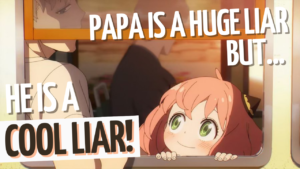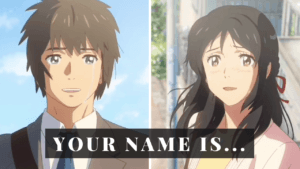Let’s learn Japanese with Ichigo’s quote from Bleach.
CONTENTS
Video
Ichigo’s Quote
Japanese: 奇跡は一度だったよな。じゃあ二度目はなんだ。
Romaji: kiseki wa ichido datta yo na. jā nidome wa nan da.
English: Miracles only happen once, right? Then what do you call it the second time?
Analysis
奇跡は一度だったよな
Actually, there should be quotation marks (「奇跡は一度」) as he quoted what Byakuya said before when Ichigo took the lead in the fight the first time. So let’s look at that first.
Byakuya’s Line
奇跡は一度だ。二度はないぞ、小僧!
kiseki wa ichido da. nido wa nai zo, kozō!
奇跡は一度だ: This is the basic sentence structure “A は B だ” meaning “A is B” so it means “a miracle is once”. So what he is saying is “miracles only happen once”.
二度はないぞ: 二度 means “twice”, は marks the topic, ない means “doesn’t exist” and ぞ is used to emphasise the statement in male speech. So he is saying “it never happens twice” or “there is no second time”.
So Ichigo quoted Byakuya’s line “奇跡は一度” meaning “miracles only happen once” and added だったよな.
だった is the past tense of だ so it means “was”.
よな is the masculine version of よね meaning “right?” which is used when you want confirmation from the listener.
So 奇跡は一度だったよな means “miracles only happen once, right?” or “miracles only happen once, was it?”.
じゃあ二度目はなんだ
じゃあ means “then”.
二度目はなんだ is again the “A は B だ” sentence but this time the B is なん meaning “what” and the A is 二度目 meaning “the second time” so it means “what is the second time?” so he’s saying “what do you call it the second time?”.
As you can see, they are only using simple sentence structures. Please note that だ is only attached to a noun or na-adjective, and if it’s an i-adjective or verb you just don’t need だ. Here are some examples. 明日は雨だ。meaning “It will rain tomorrow“. 図書館は静かだ。meaning “it’s quiet in the library“. 日本の冬は寒い。meaning “It’s cold in winter in Japan“.
Examples
よな (“right?” in male speech)
この電車、新宿に行くよな。
kono densha, shinjuku ni iku yona.
This train is going to Shinjuku, right?
お前の家はこっちだよな。
omae no ie wa kocchi da yona.
Your house is this way, right?
中学の担任の先生は厳しかったよな。
chūgaku no tannin no sensei wa kibishikatta yona.
Our teacher in junior high was strict, wasn’t he?
じゃあ (then)
イタリア製でこの値段ですか?じゃあ買います!
itaria-sei de kono nedan desu ka? jā kaimasu!
It’s made in Italy and it’s this price? Then I’ll buy it!
明日暇なの?じゃあ遊ぼう!
ashita hima nano? jā asobō!
Are you free tomorrow? Then let’s hang out!
じゃあまた来週!
jā mata raishū!
Then, see you next week!
Noun + は + なんだ (what is …?)
その顔はなんだ。ふざけてるのか?
sono kao wa nan da. fuzaketeru no ka?
What’s that face? Are you mucking around?
お前の夢はなんだ。
omae no yume wa nan da.
What is your dream?
この食べ物はなんだ!?まずい!
kono tabemono wa nan da!? mazui!
What is this food?! It’s disgusting!
なんだ is usually used towards someone in lower status or equals in male speech (in female speech, なに is used) but it can be used by girls when they are giving a quiz (and they often make a vowel sound of な longer).
食べられないパンはなーんだ?
taberarenai pan wa nān da?
What is a “pan (bread)” you can’t eat?
Support Easy Peasy Japanesey
If you enjoy our content, please consider supporting Easy Peasy Japanesey. Your support will help keep us going. Thanks for all your support!


